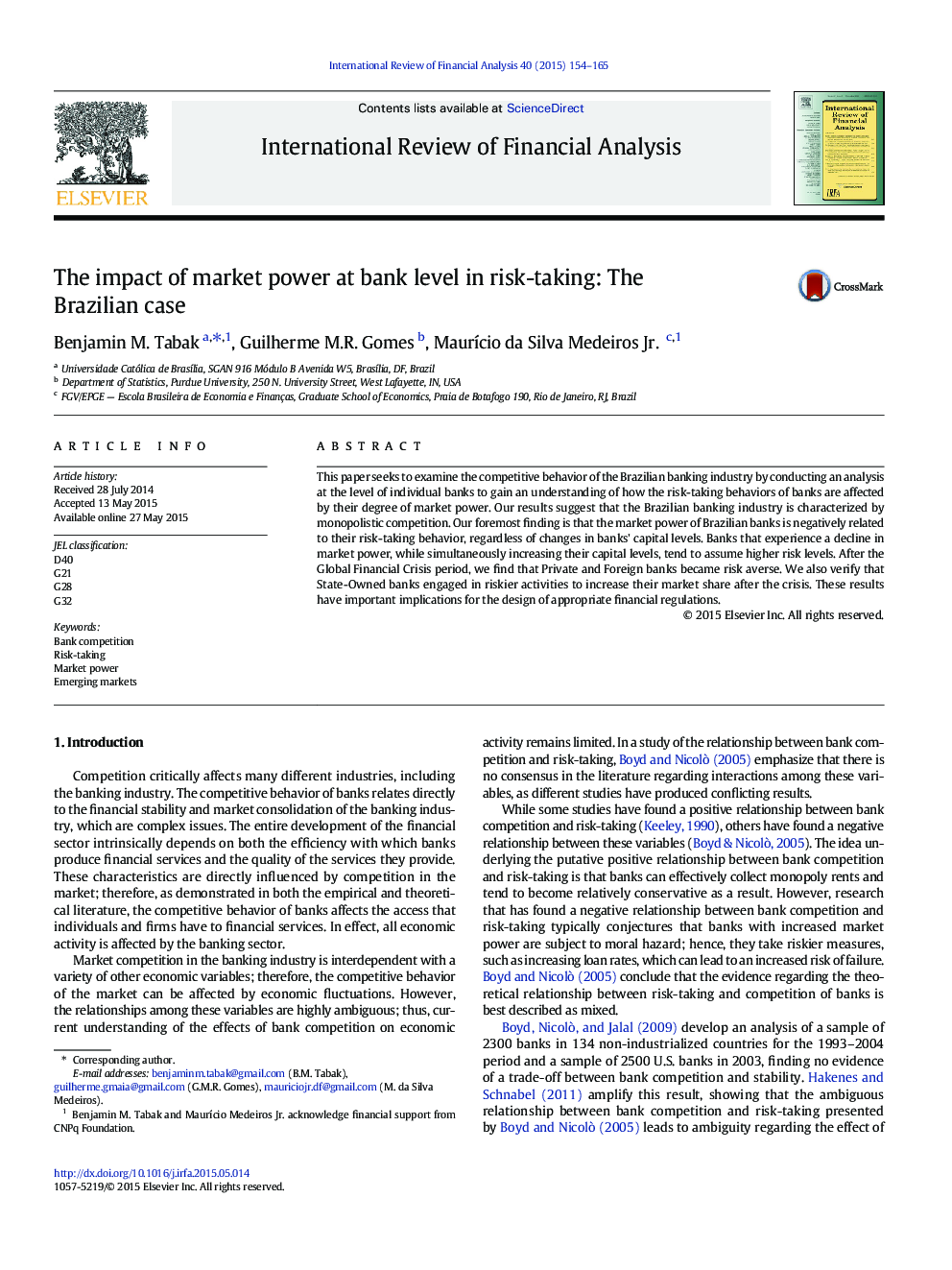| Article ID | Journal | Published Year | Pages | File Type |
|---|---|---|---|---|
| 5084685 | International Review of Financial Analysis | 2015 | 12 Pages |
â¢We study the competitive behavior of the Brazilian banking industry and its associated risk taking.â¢We use a local regression methodology (Cleveland, 1979; Cleveland and Devlin, 1988) to measure bank competition.â¢Market power of Brazilian banks is negatively related to their risk-taking behavior.â¢Our results have important implications for the design of appropriate financial regulation.
This paper seeks to examine the competitive behavior of the Brazilian banking industry by conducting an analysis at the level of individual banks to gain an understanding of how the risk-taking behaviors of banks are affected by their degree of market power. Our results suggest that the Brazilian banking industry is characterized by monopolistic competition. Our foremost finding is that the market power of Brazilian banks is negatively related to their risk-taking behavior, regardless of changes in banks' capital levels. Banks that experience a decline in market power, while simultaneously increasing their capital levels, tend to assume higher risk levels. After the Global Financial Crisis period, we find that Private and Foreign banks became risk averse. We also verify that State-Owned banks engaged in riskier activities to increase their market share after the crisis. These results have important implications for the design of appropriate financial regulations.
